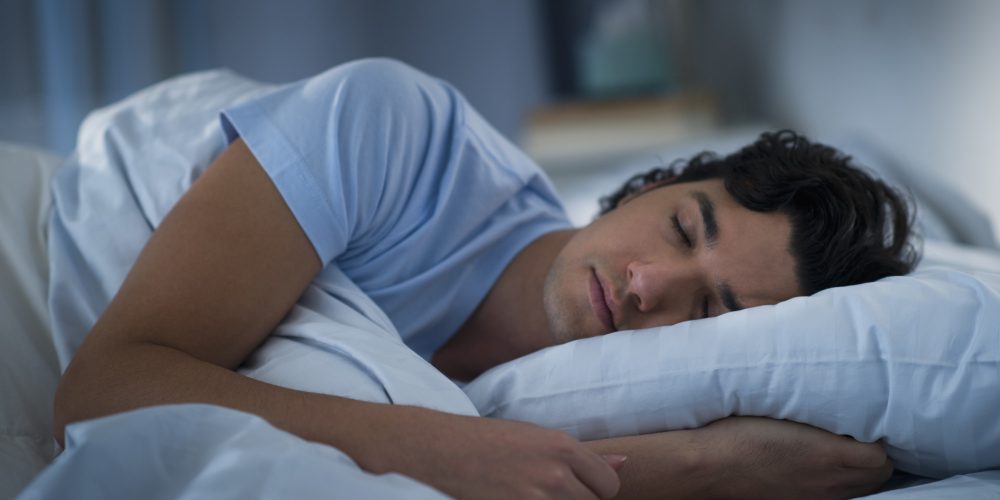There are certain things that we do that refrain us from getting a good night’s sleep. Stopping or reducing these can greatly improve your sleep. Check out the article we found at Article Mercola.
1. Open Your Shades
Exposure to bright light first thing in the morning stops production of the sleep-inducing hormone melatonin and signals to your body that it’s time to wake up. Outdoor sunlight is best, so you might even want to take a quick walk outside.
2. Make Your Bed
This is a psychological trick aimed at making your bedroom less cluttered — and therefore easier to relax in — come bedtime. You can also quickly put away any junk cluttering your nightstand and dresser.
3. Exercise
Exercise leads to better sleep at night. Many people schedule their full workouts for morning, which makes it easier to also exercise while fasting (an added benefit). If you don’t have time for a full workout, at least do some quick stretching or body-weight exercises.
4. Take a Walk Outdoors After Lunch
Not only will this increase in physical activity help you sleep later, but taking your walk outdoors gives you more exposure to bright sunlight. Light intensity is measured in lux units, and on any given day, the outdoor lux units will be around 100,000 at noon.
Indoors, the typical average is somewhere between 100 to 2,000 lux units — about two orders of magnitude less. The brightness of the light matters, because your pineal gland produces melatonin roughly in approximation to the contrast of bright sun exposure in the day and complete darkness at night.
If you are in relative darkness all day long, it can’t appreciate the difference and will not optimize your melatonin production. This, in turn, can have some rather significant ramifications for your health and sleep. I take a one-hour walk every day in the bright sunlight on the beach, so along with boosting my vitamin D, I also anchor my circadian rhythm at the same time and I rarely ever have trouble sleeping.
5. Cut Off Your Caffeine
If you’re a coffee drinker, take your last caffeinated sip in the early afternoon (this applies to caffeinated soda, too). The caffeine can linger in your body for hours, blocking a brain chemical called adenosine that would otherwise help you to fall asleep.
6. Consider a Nap
According to Rubin Naiman, Ph. D. a clinical psychologist, author, teacher, and a leader in integrative medicine approaches to sleep and dreams, we’re biologically programmed to nap during the daytime, typically in the middle of the afternoon.
The key is to avoid napping for too long, as this may disrupt your circadian rhythms, which would hurt your sleep instead of help it. The ideal nap time for adults appears to be around 20 minutes (any longer and you’ll enter the deeper stages of sleep and may feel groggy when you wake up).
7. Exercise in the Early Evening (If You Haven’t Already)
The importance of exercise for sleep cannot be overstated, so if you didn’t fit in your workout in the morning, be sure to do so later. There is some debate over how close is too close to bedtime to exercise. For some people, exercising too close to bedtime may keep you awake, but for others even late-night exercise seems to help (not hinder) sleep.
One poll by the National Sleep Foundation found that 83 percent of people said they slept better when they exercised (even late at night) than when they did not, so even if it’s late, you may still want to exercise.Let your body be your guide.
8. Take 15 Minutes to Unwind
If you’re stressed, it’s harder to fall asleep and stay asleep. Taking 15 minutes (at least) each day to relax may help your sleep significantly. You may try listening to music, journaling, meditation, chatting with a neighbor or the Emotional Freedom Techniques (EFT). Do whatever works best for you.
9. Eat a Light Dinner and Stop Eating Three Hours Before Bed
If you eat a heavy meal too close to bedtime, your body will have to devote energy to digesting your food when it should be recharging during sleep. As part of Peak Fasting, I also recommend that you stop eating three hours before bed and don’t have your first meal until 13 to 18 hours later.
10. At Sundown, Dim Your Lights (or Use Amber-Colored Glasses)
In the evening (around 8 p.m.), you’ll want to dim your lights and turn off electronic devices. Normally, your brain starts secreting melatonin between 9 p.m. and 10 p.m. These devices emit light that may stifle that process. After sundown, shift to a low-wattage bulb with yellow, orange or red light if you need illumination.
A salt lamp illuminated by a 5-watt bulb is an ideal solution that will not interfere with your melatonin production. If using a computer or smartphone, install blue light-blocking software like f.lux, which automatically alters the color temperature of your screen as the day goes on, pulling out the blue wavelengths as it gets late.
Next Article: Learn How Lack Of Sleep Causes Overeating And Weight Gain
Read Full Article: 16 Chronological Tips To Improve Sleep







Recent Comments